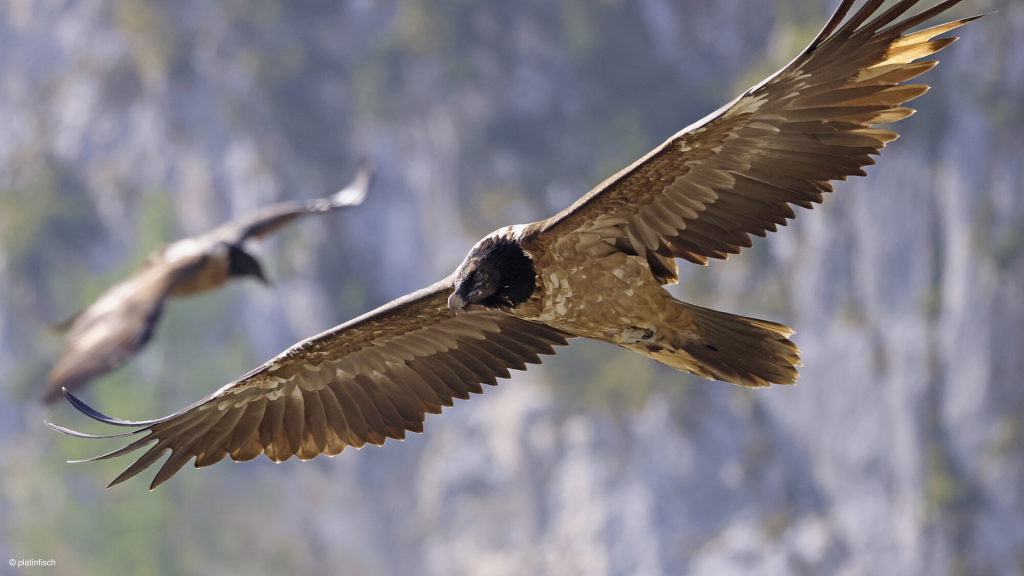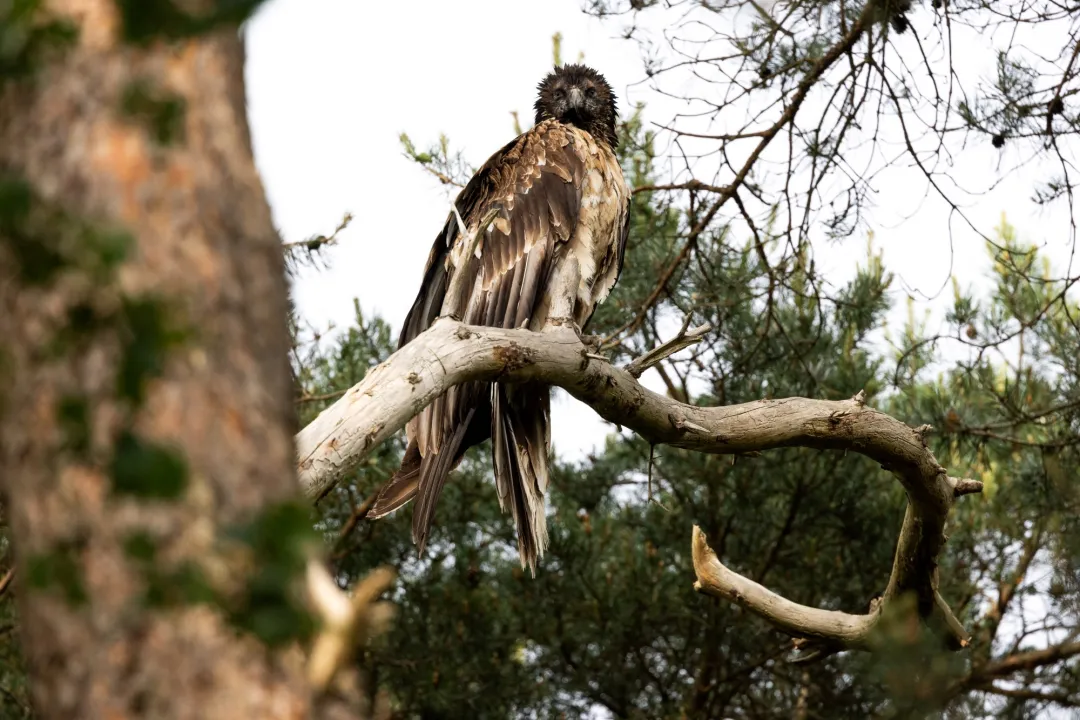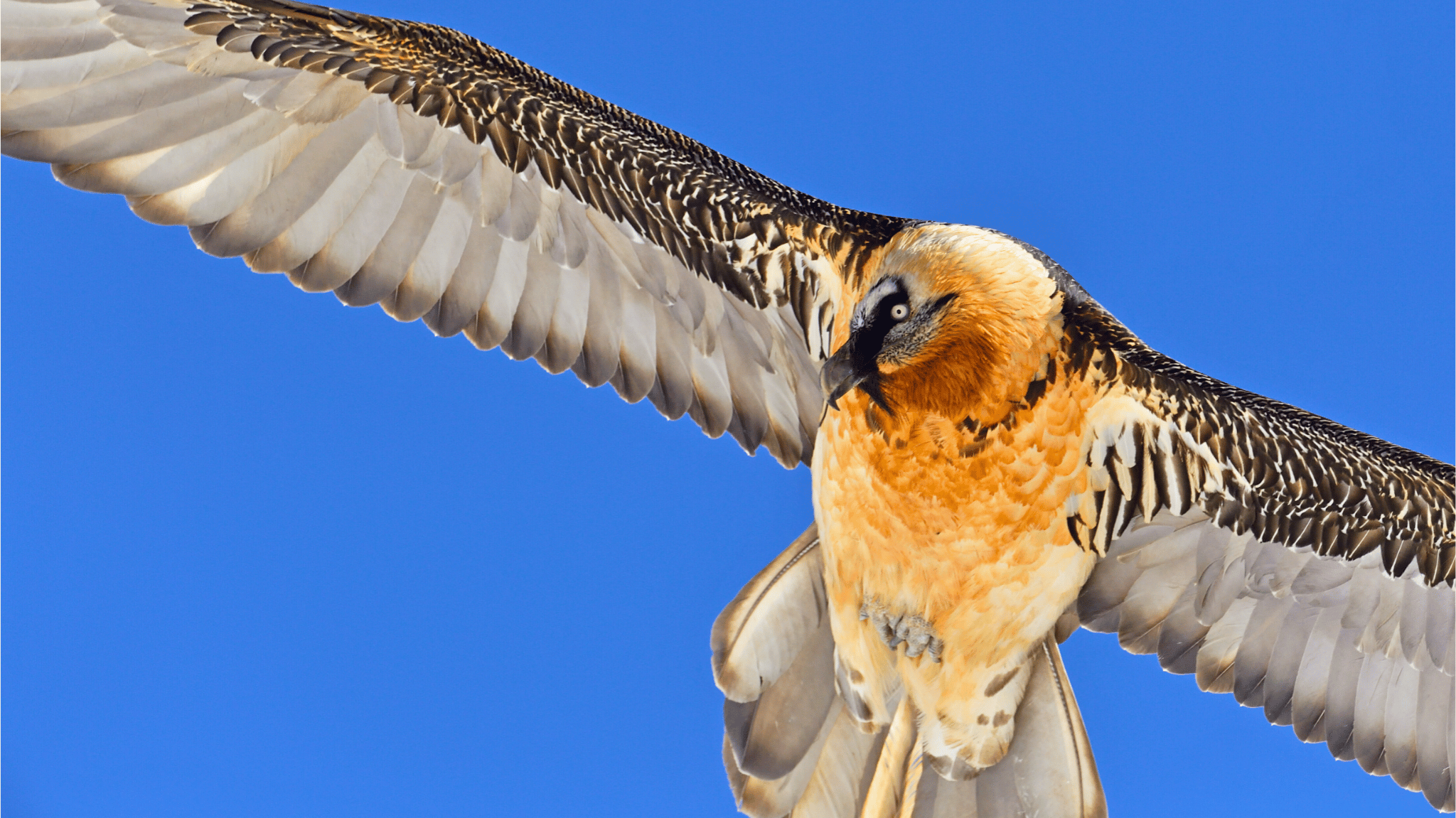
2021 was a challenging year for all of us, but our work never stopped, and we continued to protect and conserve Europe’s vulture species.
As we count down the days until 2022, we would like to reflect on some of the fantastic results we achieved for Europe’s vultures. Today we focus on Europe’s rarest vulture species, discussing Bearded Vulture conservation highlights as well as exciting news.
Achievements and exciting news relating to the Bearded Vulture conservation in 2021:
- VCF started to manage the Guadalentín captive breeding centre in Cazorla (Spain), the world’s largest. 10 Bearded Vulture chicks produced there in 2021, a new record.
- 26 Bearded Vultures hatched within our Bearded Vulture Captive Breeding Network, of which 23 were released into the wild: 7 in Andalusia (plus an 8th recovered Pyrenean chick), 5 in Grands Causses, 6 in the Alps (including first-ever release in Germany), 3 in Maestrazgo and 2 in Corsica.
- The Bearded Vulture population in Europe continues to expand through reintroduction projects: 60+ pairs of wild Bearded Vultures in the Alps fledged 44 young, and 7 breeding pairs in Andalusia fledged 3 young – both new records.
- The Annual Bearded Vulture Meeting 2021 and the Final LIFE GypConnect Seminar took place in France, sharing the latest Bearded Vulture conservation and research insights in Europe and elsewhere
- The Bearded Vulture returned to Granada in Andalusia as a breeding species after half a century since its extinction.
- A new study conducted in Spain demonstrated the benefits avian scavengers contribute to people and the need to balance nature conservation and a sustainable economy.
- It has been 30 years since the first Bearded Vultures were reintroduced in the Swiss Alps.
- Habitat modelling comprehends the habitat requirements of Bearded Vultures, helping produce maps showing areas with particularly high conflict potential and which should not be used for wind turbines in the Swiss Alps.
- Long-term and targeted conservation efforts changed the status of the Bearded Vulture in Europe from Vulnerable to Near Threatened, although the species is declining in certain regions.
Don’t forget that you can track the movements of the Bearded Vultures we follow with GPS tags by visiting our online public maps.
If you want to help vultures during this holidays season, here are three things you can do:
- Please donate to the VCF and help us continue our work protecting vultures
- Sign up to our newsletter to stay updated and for offering to help vultures when such need arises
- Spread the word on social media and pledge to discuss vultures and their importance to three other people this holiday season
Thank you for your support. The Vulture Conservation Foundation team hopes you are healthy and wishes you a very happy new year!



